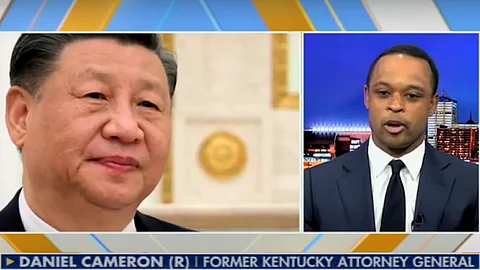

The founder of an organization that downgrades company ratings for advancing DEI is celebrating a retreat on these policies, but warns Chinese tariffs could affect the bottom line of many U.S. companies.
"The era of common sense is upon us," 1792 Exchange founder Daniel Cameron said in a recent email blast. "This week we are pleased to highlight a few companies that have decided to get back to business."
Meta and McDonald's are the latest world-leading brands to back off some DEI practices. Both companies announced a series of changes to put their customers and shareholders first again.
JPMorgan Chase withdrew from the Net Zero Banking Alliance, following Bank of America, Wells Fargo, Goldman Sachs, Citi, and Morgan Stanley.
BlackRock withdrew from the Net Zero Asset Managers Initiative (NZAM). NZAM subsequently stopped tracking signatory implementation and reporting and will consult its signatories as it reviews its initiative.
"These companies have other climate alliances to withdraw from and policies to change, but these actions are nonetheless encouraging," noted Cameron.
Earlier this month, a federal judge in Texas ruled American Airlines violated federal law by filling employees retirement plans’ with funds incorporating ESG factors. American Airlines should put its shareholders first by focusing on maximizing returns.
"And hopefully, this ruling will lead to the end of partisan investment practices," said Cameron, who was formerly the Attorney General of Kentucky.
1792 Exchange recently launched a new China Risk Database. This resource provides a snapshot of funds invested by Fortune 100 companies in Communist China and demonstrates the potential financial impact on these companies if the United States imposes sanctions under Trump's leadership.
The database says these companies make $617 billion dollars from China each year. They have $1.25 billion in assets there, comprising 9.02% of their global holdings. The projected amount of tariffs that would be applied annually to these Fortune 100 companies totals $157 Billion.
Based on available information the exchange says some U.S. companies would face substantial annual tariffs over their Chinese operations, based on the average of the fiscal years 2018, 2020, and 2022:
Citigroup $16.1B
Metlife $7.9B
Apple $6.9B
JPMorgan Chase: $5.7B
Intel: $5.2B
Johnson and Johnson: $4.1B.
Nearly half of the Fortune 100 do not fully disclose data on their China operations, their relationship with the Chinese government, or the risks to shareholders, something Cameron said should change. Only 18 of the Fortune 100 companies do not have operations in China.
To help shareholders, the database quantifies the financial risk to American companies in the event of sanctions or confiscation of assets by the Chinese Communist Party. The tool also features an interactive map that visualizes the scale of U.S. investment in China-based assets.
